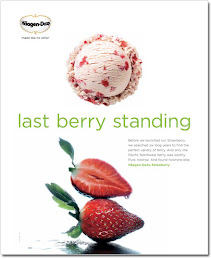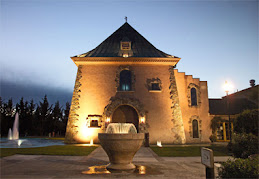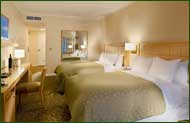Designing and operating an eco-friendly hotel involves tradeoffs. As Mr. Muhle walked us through the hotel, it became evident to me that he faced many tradeoffs between the requirements of official certification programs and his own judgment of green products and services. Certification rules and guidelines do not always guarantee a product or service is actually the best environmental choice. While some products or service providers may have met the requirements of certification programs, the OG team often decided the requirements were not enough, and went further to be more ‘green.’ There is a difference between being green on paper and green in spirit. Some examples:
- The Orchard Garden team wanted their restaurant to represent the ‘green’ ideals of the hotel. One way to do this would be to serve only foods certified as organic. However, Mr. Muhle and team determined that it was more important to serve local, in-season food, and after those requirements are met, serve organic food when possible. Many local farmers grow food that is pesticide free, however due to the effort and expense required to pursue organic certification, the growers do not do so. Thus, the OG team is using their own discretion to determine what it means for food to be ‘green’ rather than strictly following guidelines set out by organic food certification organizations.
- Green Seal encourages hotels to use environmentally friendly detergent for their laundry. However, the nearest such provider was extremely far from the hotel. The OG team determined it was decidedly not green to truck their laundry so far each day. Consequently, they partnered with a nearby vendor that agreed to change detergent for the Orchard Garden. By using the first vendor, the OG may have technically met the requirement for green certification, but it was their personal initiative that really 'greened' the hotel.
- Mr. Muhle and the Orchard Garden team had to decide how to ‘green’ the toiletries hotels provide to the guests. Green Seal encourages hotels to use mass dispensers, which do not maintain the image of a high-end hotel. Mr. Muhle also explored compostable containers out of corn, but the team decided that it was not green to use corn in packaging when so many people lack sufficient food. Finally, they identified a local manufacturer of shower products that worked with Orchard Garden to create a 360 recycling program for the bottles.
- Existing sustainable wallpaper was not washable. Because guests often scuff the wall with their suitcases, it is critical that hotel staff be able to wash the wallpaper to maintain the hotel appearance.
- Organic cotton sheets are not durable enough to withstand commercial use. Mr. Muhle has continued to test new brands of sheets, including those containing bamboo, without success.
- The team had wanted to place solar panels on the roof; however, the roof was too small to accommodate solar panels in addition to the generator, chiller, and everything else needed there.
Other sustainable elements of the hotel included:
- The hotel has European key card systems, where after opening the door, guests must insert the key card into a special slot to activate the lighting. When guests leave, because they must take the key, electricity is automatically turned off.
- Partitioned waste paper baskets in room allow guests to recycle their waste. These are not currently available commercially so the Orchard Garden team designed their own small, three section waste baskets, with separate bins for paper, bottles, and non-recyclable trash.
- All wood used in building materials and furniture is Forest Stewardship Council certified.
- Curtains, cover-lets and other in-room fabrics are machine washable to avoid the chemical-laden dry cleaning process.
- Carpets are made from recycled materials.
- Citrus based cleaners are used by the housekeeping staff.
- Recycled toilet paper.
- Each guest room contains vents to supply fresh air to room the room since San Francisco building codes require that windows be sealed.
- VOC free paint used throughout the hotel.
- CFC and LED lighting
Some good news is that environmentally friendly products and building materials have improved in selection, availability, and quality in the two years since the hotel was built. Because the Orchard Garden team is committed to being ‘green’ both in spirit and on paper, they continue to evaluate these new products for use in the hotel. For example, when a better shower head system was introduced, Mr. Muhle upgraded all of the showers in the hotel. I was truly impressed with the dedication of the owners, builders, and management of the Orchard Garden to environmentally friendly practices. The Orchard Garden is a beautiful hotel and the guest rooms are extremely serene. I would be thrilled to stay in a hotel such as this one!
Here are some links if you want to learn more about the hotel, Green Seal, or LEED:
http://www.theorchardgardenhotel.com/
http://www.greenseal.org/programs/lodging_projects.cfm
http://www.usgbc.org/DisplayPage.aspx?CategoryID=19








No comments:
Post a Comment